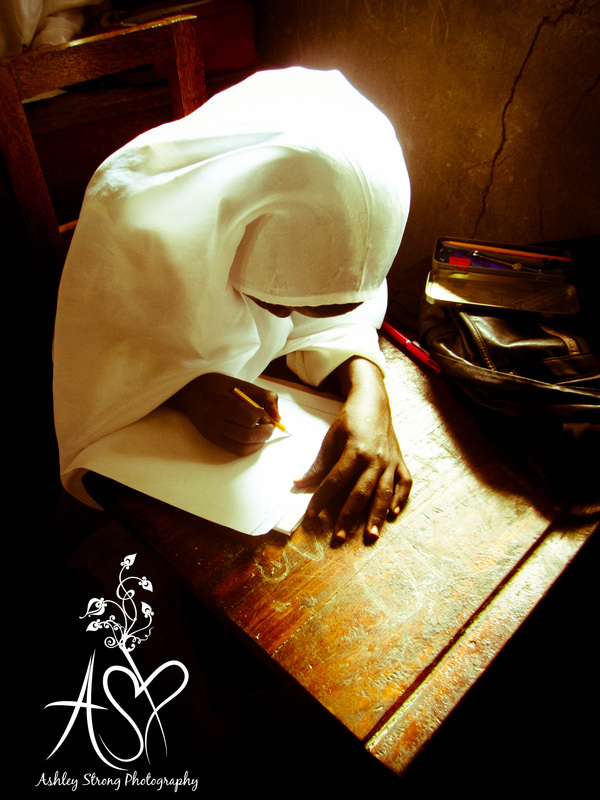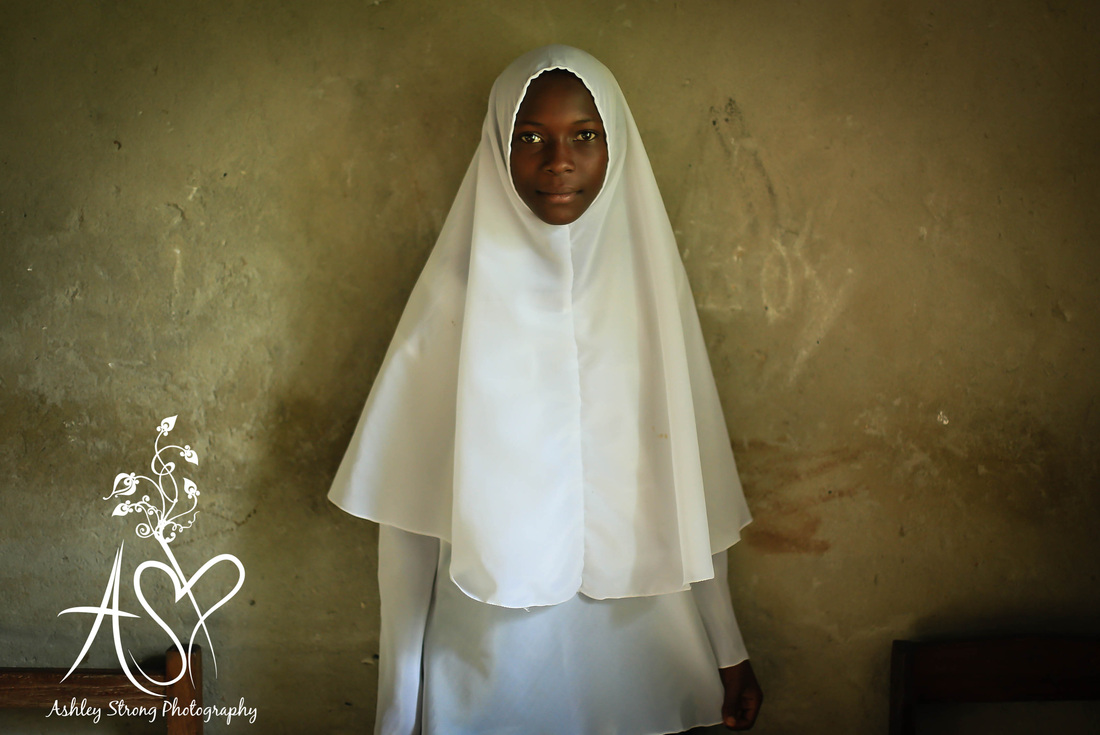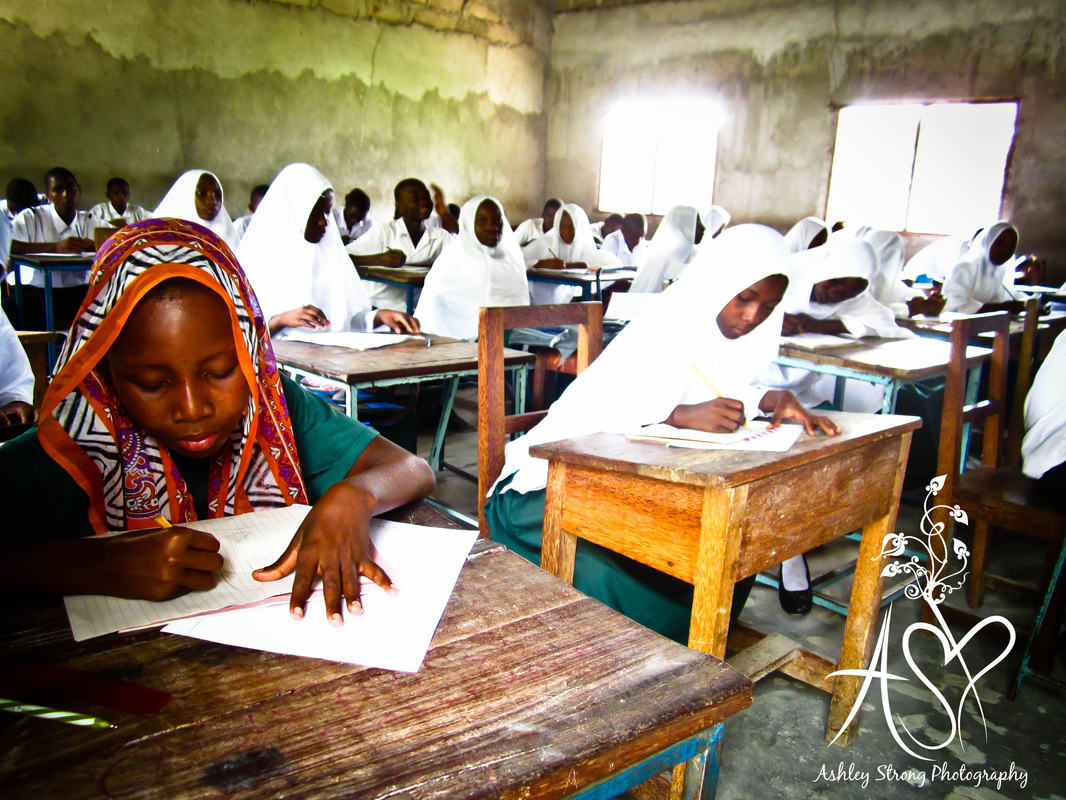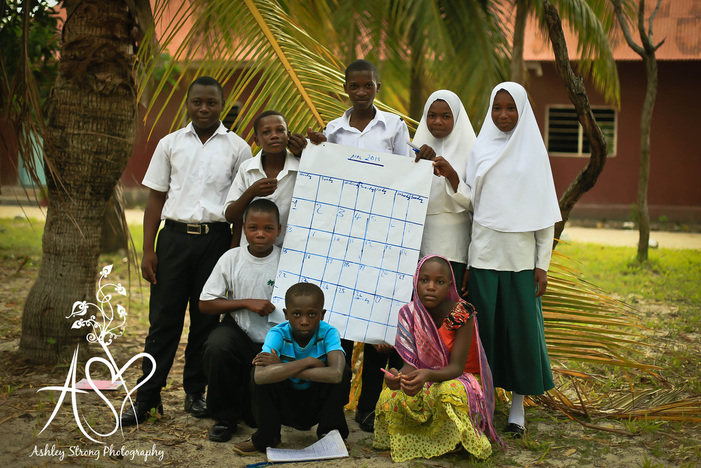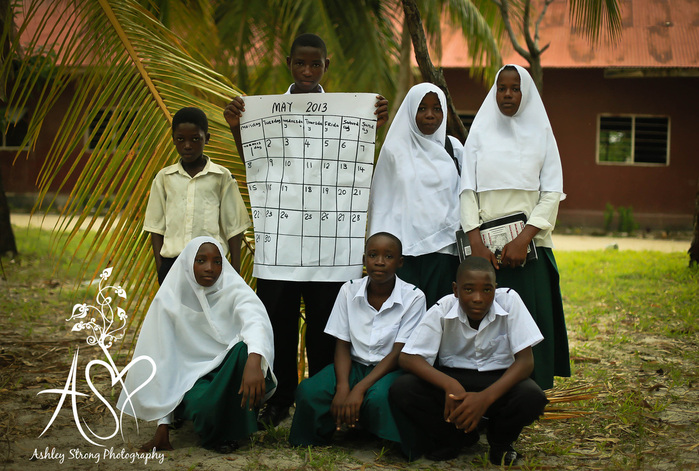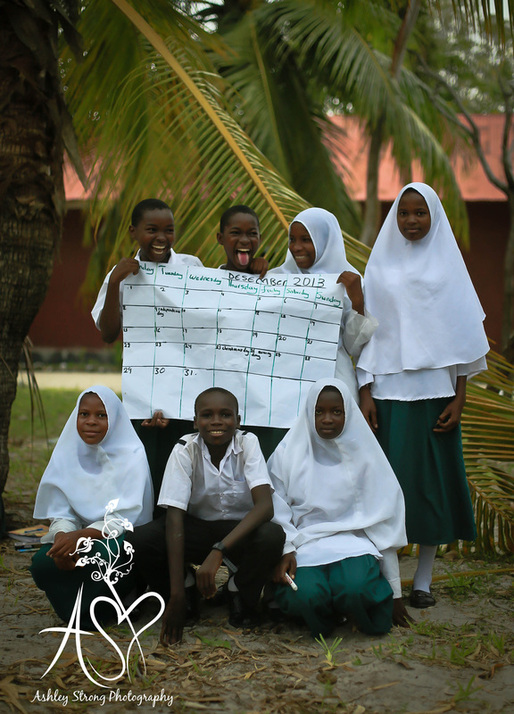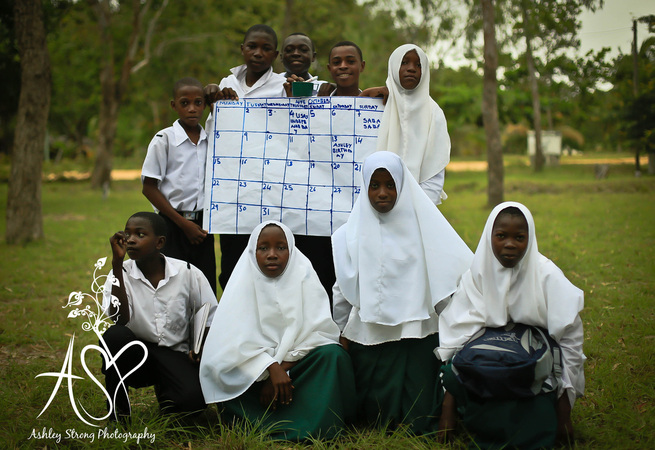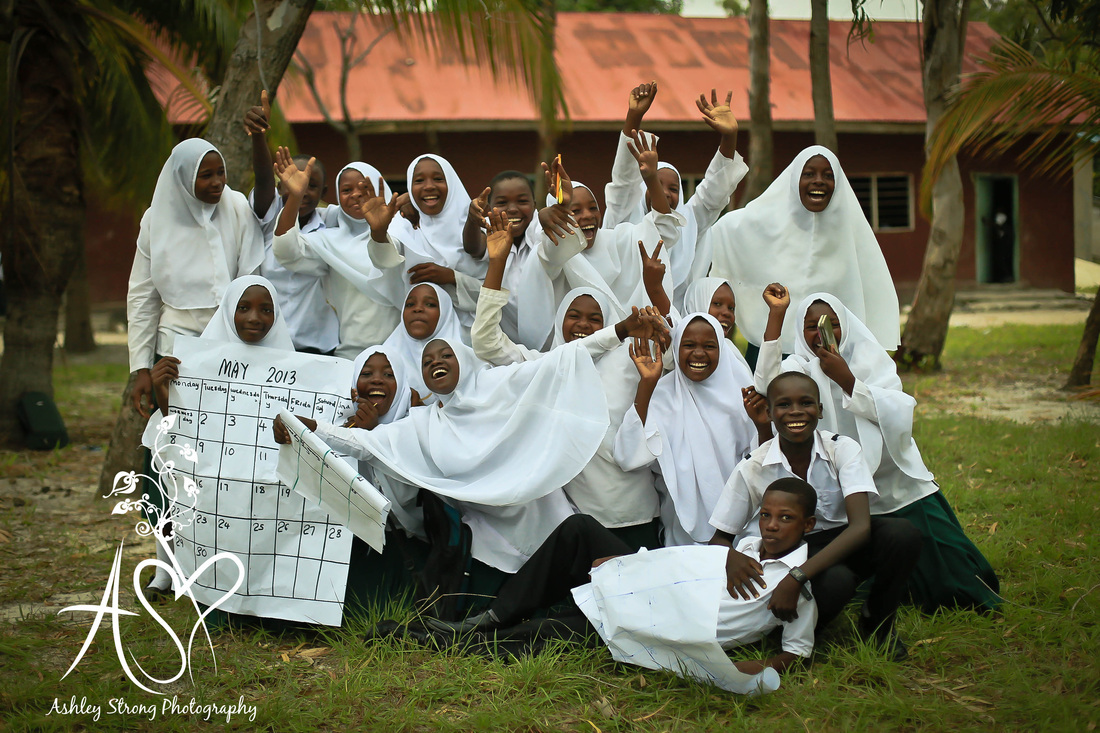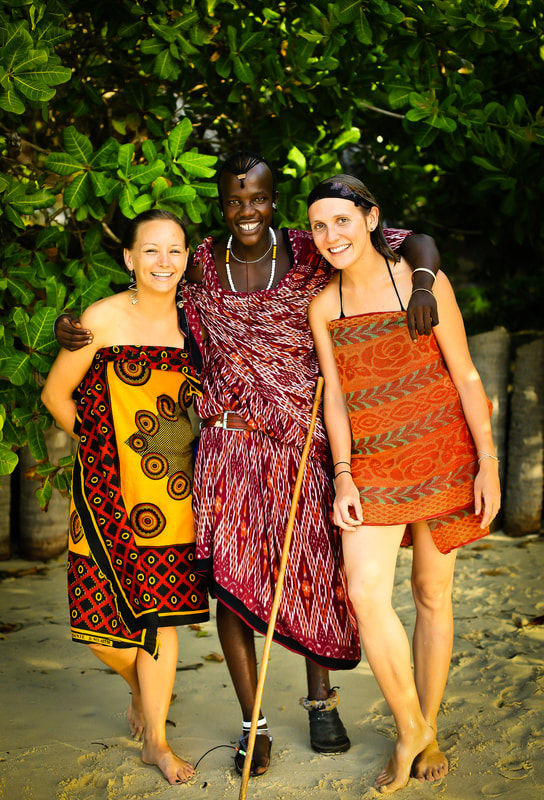|
Oh, my students! My Students. My students.
What to say about my students. So much to say about teaching in Tanzania. So much to say about my students. Well here it goes…. I am nearing the end of my third week of teaching TEE - TZ (Technology Enhanced English - Tanzania). A quick run down of the program… this is a semester long program consisting of being here for a little over nine weeks. One week of training upon arrival, one week of pre-testing at our designated school, six weeks of intense English lesson plans, one week of post-testing and traveling time in-between. Training is where we learn the in's and out's of Genki English, Genki phonics, our lesson planning and our schedule for the six weeks. Pre-testing is a combination of seven tests both written and oral seeing where the incoming Form I secondary school students perform in their English skills. Our pretesting consisted of only testing 45 out of the 120 enrolled Form I students as testing is done during an option week of school for the children which is usually a week that is heavily labor intensive. The six weeks then includes Genki English computer lessons, Genki phonics lessons with lots of pronunciation and gestures and 37 lessons ranging from greetings, body parts, questions, dictionaries, time, present tense, parts of speech and so much more! Testing didn't take up the entire pre-testing week, so I used Thursday afternoon and Friday morning (as Friday's are half days) to get to know the students on a more personal level by giving them mediums to express themselves. The first thing I did was teach them "Slippery Fish." This is a song I learned during training at Isabel Patterson Child Development Center in Long Beach. It's a song that kids instantly love because the hand gestures are so much fun. Seeing as I am teaching these students very basic English skills, this was perfect. After writing all the lyrics on the board with animal names in both Swahili and English alongside very poor drawings, we went through it a couple times and before I knew it, everyone was happily singing slippery fish! The second activity I did with the students was a writing and drawing in response to the question, Unataka kuwa nani ukikua? (what do you want to be when you grow up?). I put example professions in both English and Swahili on the board and explained what each one was. I then gave every student their own piece of computer paper and had them visually express what they wanted to be when they grew up. This was an interesting exercise as many of them just copied those ideas and drawing around them, while a couple were very creative coming up with their own design and profession. Reality is, many of these young minds haven't been exposed to the sample professions and even more so reality is many of these students will not pass their exams to move onto Form II and then assume full responsibilities of supporting the family. I took these pieces of paper, attached them to a large post-it like paper and hung them around the classroom with the title on top. After morning and afternoon breaks, the students excitedly run to the posters to see what others drew and said about their future. From the second week of the program on, there are four English Form I semester teachers including myself, Seif (local volunteer), Regina (local teacher) and Issac (local teacher). There are three streams (I, II, and III). I created a schedule with an even rotation where each week a teacher is assigned either Stream I, Steam II, Steam III or Genki English enabling the students to get a variety of English teachers pronouncing the necessary words for them to advance. Materials are extremely scare here. Students come to school with their mathematical boxes, a pen, pencil and notebook. Some have backpacks, but not all. I have one very large blackboard at the front of the classroom with a box of chalk. My hand definitely cramps up by the end of the day as I have to press extremely hard to get the necessary words on the board. The chalk box says its dustless. I beg to differ. By morning break (which is when I eat breakfast) my clothes are half white as they are decorated in chalk. The students are responsible for writing down the necessary information from the board into their notebooks. This process becomes extremely tedious as in primary school, the use of rulers was obviously extensive and everything has to have a perfectly straight line and their drawings have to be done in pencil and mirror exactly what mine looks like on the board. And oh yes, my images on the blackboard are not ones that should be duplicated. They are quite entertaining. Corporal punishment is sadly something that is regularly used in Tanzanian schools. And yes, I have seen it far too many times since I've been teaching at my secondary school. There is a lot I have to say and to be said about corporal punishment, but this is not the time nor the appropriate medium. My first week I was extremely intimidated and felt at a disadvantage because I could not speak fluent Swahili and tell them everything I waned to. Now, after almost three weeks of teaching, I am embrace that I am not fluent in Swahili (that is ONLY in the classroom) as it forces the students to ask questions and talk to me in English, which is getting easier for them but still tough. This past Friday, I did an activity with my Stream II students about reading, understanding and creating monthly calendars. I put the class into seven groups and handed each group a notecard including the month, how many days in the month and special Tanzanian holidays during that month, a marker pen, a large white piece of paper and sent them outside to create their calendars in their groups. Not only did I get to witness these young minds working together, I got to see a new kind of excitement and empowerment radiate from them. The seven groups were all so proud of their calendars, each a little different in size and shape, but all including the necessary information. Once each group completed their calendars, I took group photos. I think this was their favorite part as everyone was surprisingly overexcited to take photos. These group photos turned into massive class photos when as many people trying to jump in the picture as possible. This outside activity proved extremely beneficial for the students as it took them outside their strict classrooms norms and into the beautiful jungle of a schoolyard all the while applying what they learned and being able to express themselves. I am constantly amazed at how quickly these students catch on. If one does not understand the English task given, that who does understand will turn to the other and say the directions in Swahili. Students are extremely quiet at first, it takes them quite some time to come out of their shells. Girls especially do not talk very often and I have to ask them multiple times to repeat what they said so I can actually hear them. Muslim names differ greatly from that of Christian names. All girls have to have their head shaved regardless of wearing a hijabu or not. Uniforms are stickily enforced where the students clothes need to be clean, ironed and according to dress code -- the boys wear black pants, a dark belt, a white colored shirt and black shoes -- the girls wear forest green skirts, white colored shirts, white socks, black shoes and if Muslim a large white fabric known as a hijabu over their heads. This coming weekend marks our midpoint evaluation where the local teachers, local volunteers and international volunteers come together to discuss what is and is not working with their schools and the program as a whole. I speak my mind to the extent that needs to be heard, but I do have to constantly remind myself that the Tanzanian school system is not even comparable to that of the American school system. The hamna shida no hurry way of life is admirable in a multitude of ways, except when it starts to affect youth's education. Unfortunately, school is not a top priority, teachers are hard to come by, those who are teaching are not always that dedicated, schools have very little resources and the list goes on and on. This is not always true as there are some incredibly dedicated teachers who heavily promote the advancement of the students. I am, as always just extremely thankful to have this opportunity to contribute my passion and love for education, knowledge and humanity at large. All in all, at this time in the teaching process, I can honestly say…. teaching has brought about a whole new happiness, new kind of gratification, new understanding for youth and education systems as a whole. Seeing as this is my first time in a classroom environment responsible for teaching an entire class, I was bound to have "new" emotions, but just wasn't too sure what they would hold. Monday mornings are a little tough as they ended last week with a different teacher and they just had the whole weekend off. But by Genki phonics time, I have the kids standing on their chairs jiggling around like jello! Not only is J one of our phonics words with the gesture of jiggling, it is a wonderful tool to get them excited about the days lessons. I am absolutely loving my time in the classroom, getting to teach these students an intense English curriculum with my flavor and spreading/sharing so much love, positivity, encouragement and inspiration. Not just from me to them, but most definitely them towards me. I know my remaining three weeks will be even better than the previous three weeks as with each lesson, each day, I am getting more and more able to them in the way best way possible. I am blessed. Thank you for reading, listening and embracing.
1 Comment
Jay Fierro
2/7/2013 01:28:48 am
Wow, Ashley, what an adventure. Not only have you influenced and changed the lives of those children you teach, but you have also influenced and changed the lives of those of us who follow your life. thank you for being so caring and inspiring!!! those are some of the most beautiful pics you have taken so far. a picture may be worth a thousand words, but yours are worth volumes!!! thanks you so much for sharing. love you, miss you, and cant wait til you make it back. have a blessed day !!!
Reply
Leave a Reply. |
Jambo from Tanzania:Living & Teaching abroad in Mafia Island, Tanzania
In June of 2012.... a dream came true.
I was accepted into a WorldTeach program to teach English in Tanzania on Mafia Island. In late December of 2012, I embarked on a 3 month journey to the motherland! Enjoy this blog as it was designed to share my photographs and adventures while living and teaching on Mafia Island, Tanzania. Archives |

